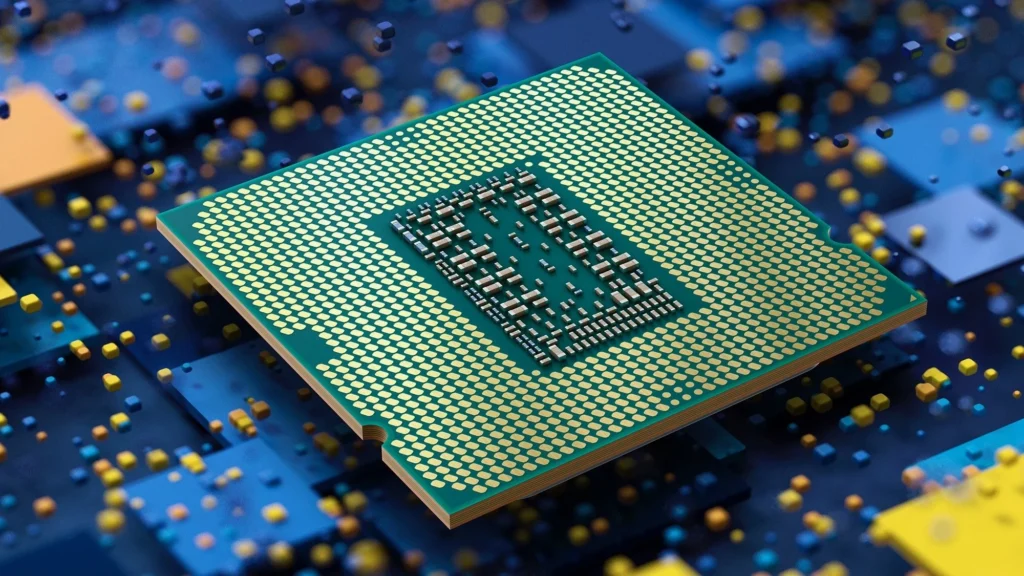Intel has recently made a significant advancement in chip technology, which promises to revolutionize computing speed and efficiency. This breakthrough is expected to bring about faster computing processes and improved performance in a wide range of electronic devices. The new chip technology is designed to enhance data processing capabilities and enable quicker access to information, ultimately leading to a more seamless user experience. Intel’s announcement has sparked excitement and anticipation within the tech industry, as it paves the way for a new era of high-speed computing solutions.
This development is poised to have a transformative impact on various sectors, including artificial intelligence, data analytics, and scientific research. The innovative chip technology is anticipated to accelerate the performance of machine learning algorithms and facilitate complex data analysis tasks. Additionally, this breakthrough has the potential to enhance the capabilities of supercomputers and enable them to process vast amounts of data at unprecedented speeds. As a result, this advancement is likely to fuel advancements in fields such as healthcare, finance, and autonomous vehicles, where rapid and efficient data processing is crucial for innovation and progress.
What is Intel’s Breakthrough in Chip Technology?
Intel has announced a major breakthrough in chip technology that promises to deliver faster computing speeds and improved performance. The new technology, called “gate-all-around” transistors, is a significant advancement in semiconductor design that will pave the way for more powerful and energy-efficient chips.
By utilizing this new transistor design, Intel aims to overcome the limitations of traditional transistor structures and enable the development of faster and more efficient processors for a wide range of computing applications, including data centers, artificial intelligence, and consumer electronics.
How Does “Gate-All-Around” Transistors Work?
The “gate-all-around” transistor design involves surrounding the channel with a gate on all sides, allowing for better control of the flow of electrical current. This design offers improved performance and energy efficiency compared to traditional transistor structures, as it reduces leakage and enables higher transistor density.
By implementing this advanced transistor design, Intel can achieve higher transistor density, faster switching speeds, and lower power consumption, leading to significant improvements in computing performance and energy efficiency.
Benefits of Intel’s New Chip Technology
Intel’s breakthrough in chip technology offers a range of benefits for consumers and businesses alike. With faster computing speeds and improved performance, users can experience smoother and more responsive multitasking, faster data processing, and enhanced overall computing capabilities.
Furthermore, the energy-efficient nature of the new transistor design can lead to longer battery life in mobile devices, reduced power consumption in data centers, and overall cost savings for businesses that rely on high-performance computing solutions.
Impact on Data Centers and Cloud Computing
Intel’s advanced chip technology has the potential to significantly impact data centers and cloud computing infrastructure by enabling faster and more efficient processing of large volumes of data. This can lead to improved performance, reduced latency, and enhanced scalability for cloud-based applications and services.
Additionally, the energy-efficient nature of the new transistor design can help data centers reduce their power consumption and operational costs while delivering higher levels of computing performance for demanding workloads and applications.
Implications for Artificial Intelligence and Machine Learning
The advancements in chip technology from Intel can have profound implications for artificial intelligence and machine learning applications. With faster and more energy-efficient processors, AI algorithms can be processed more quickly, leading to improved real-time decision-making and enhanced AI capabilities.
Moreover, the increased computing power and energy efficiency can enable the development of more sophisticated AI models and algorithms, leading to advancements in areas such as natural language processing, computer vision, and autonomous systems.
Consumer Electronics and Mobile Devices
Consumers can expect to see the benefits of Intel’s new chip technology in the form of faster and more efficient computing devices, including smartphones, tablets, and laptops. The improved performance and energy efficiency of the new transistor design can lead to longer battery life, faster processing speeds, and enhanced user experiences.
Furthermore, the advancements in chip technology can enable the development of more powerful and compact computing devices, leading to innovations in areas such as augmented reality, virtual reality, and immersive gaming experiences for consumers.
Future Developments and Industry Implications
Intel’s breakthrough in chip technology represents a significant milestone in the semiconductor industry and is expected to drive further advancements in computing capabilities and performance. This innovation has the potential to influence the design and development of future computing devices, as well as the infrastructure for data centers and cloud computing.
Furthermore, the continued evolution of chip technology from Intel and other semiconductor manufacturers is likely to have far-reaching implications for various industries, including healthcare, automotive, finance, and more, as computing capabilities continue to advance and empower new innovations and applications.
| Company | Announcement | Impact |
|---|---|---|
| Intel | Breakthrough in Chip Technology | Faster Computing |
Conclusion
Intel’s breakthrough in chip technology with the introduction of “gate-all-around” transistors marks a significant advancement in semiconductor design, promising faster computing speeds, improved performance, and energy efficiency. This innovation has the potential to impact a wide range of industries and applications, from data centers and artificial intelligence to consumer electronics and beyond, driving further advancements in computing capabilities and performance.
As Intel continues to push the boundaries of chip technology, we can expect to see new innovations and applications that leverage the benefits of this breakthrough, leading to enhanced computing experiences and empowering new possibilities for the future of technology.
Intel recently announced a major breakthrough in chip technology that will lead to faster computing. This advancement is expected to have a significant impact on the performance of computers and other electronic devices.



